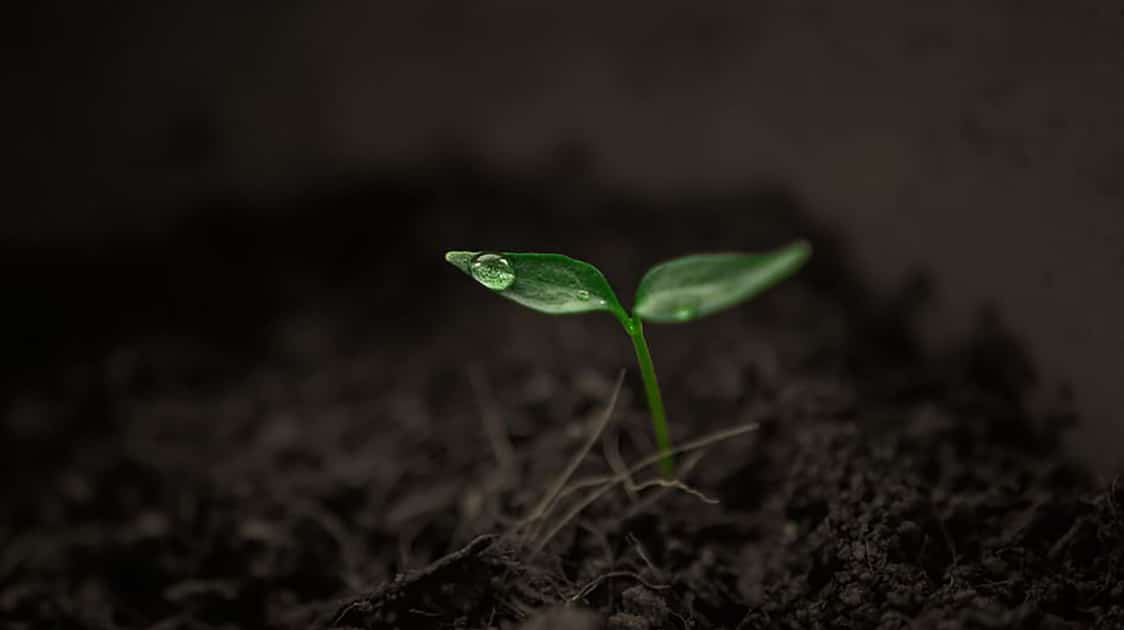
Before we dive into the wonderful world of seeds, remember that the Bios Urn ® can be planted with seeds as well as with a seedling, a sprout or a sapling. Even though a lot of content shows a tree growing from seed, it is in no way limited to seeds only. You can read about the pros and cons of each here!
Now, back to seeds! If you do decide to plant seeds in your biodegradable tree urn, there are a few things you should know before planting.
For a seed to grow into a living tree or plant, it must germinate, which is the process by which a dormant seed begins to sprout and grow into a seedling under the right growing conditions. The germination of most seeds and spores occurs in response to warmth and water, but it is a little more complex which is why we will give you some good tips to help you germinate seeds successfully.
Before getting into it, if you order seeds, they will likely need a bit of treatment before getting started. Treatment can vary, but generally takes about 1-6 weeks before the actual plantation in a tree urn.
Above all, this information is here to accompany you in what may be a very difficult time of your life. You may sometimes feel a bit overwhelmed by the information surrounding planting your Bios Urn ®, just take it step by step. It’s actually pretty simple once you know what you would like to plant. Thinking about, researching and sourcing your own seeds can become part of the beautiful journey of returning a person back to nature, it becomes part of the grieving process. So take your time. All of our urns can be stored indefinitely with or without ashes until you are ready (just keep it in a dry cool place).
Simple tips to help you germinate seeds successfully
Growing a tree or plant from seed is a wonderful miracle of nature. It can be done by anyone with the right TLC, you definitely do not need to be a gardening expert.
Growing your own means making sure that you understand the needs of your chosen plant, and the environment in which they are grown, so that tiny seeds can become a huge majestic tree. When you get things right, it can be a truly rewarding experience, even therapeutic.
Seed germination is one of the most important moments of a tree’s life. So here are some simple tips to help you germinate seeds successfully, whether you are sowing them indoors, or directly into your garden.
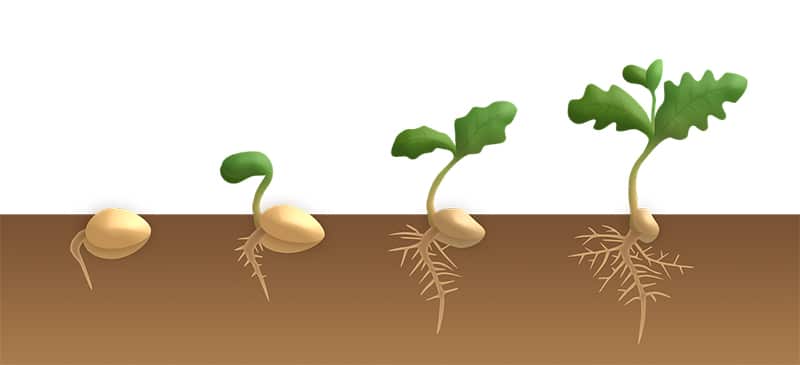
For a seed to grow into a living tree or plant, it must germinate, which is the process by which a dormant seed begins to sprout and grow into a seedling under the right growing conditions. Image source: maxpixel.net CC0 Public Domain
The quality of the seeds
First of all, in order to achieve good germination rates, you need quality seeds. If you are buying seeds, you always need to consider the source making sure you choose seeds from a reputable supplier. And, ideally, source seeds from as close to home as possible. Seeds lose viability over time, and if stored or transported incorrectly, they can yield poor results.
A native species to your area
Make sure the seeds you choose are suitable for growing in your area. We always recommend choosing a native tree species or one which is common to your area. They are more respectful of the environment and also ensure better growth. So be sure to check with a local gardening supplier or horticulturist for information on native tree species in your area.
Good germination rates depend on environmental conditions
Once you have your seeds, remember that you too will have to store them correctly. Then you will have to make sure that you provide the seeds with the environmental conditions they need to germinate successfully. Even when the environmental conditions are not perfect, you can still get plants to grow. Optimizing conditions can increase the germination rates from your Bios Urn tree.
Here are some important things to think about when trying to make sure conditions are ideal:
Water Requirements For Germination
Mature seeds typically need to rehydrate. This means that they will take on significant amounts of water before they can begin the germination process. As the seeds take in water, hydrolytic enzymes are activated. These begin to break down the food stored within the seed so that metabolic processes can take place. Water also softens the seed coating, allowing a seedling to emerge.
The amount of water required will depend on the type of seed you sow. Water too little, and germination cannot take place. But water too much and this can also cause a range of issues. Best to research this online or ask a local gardening centre or tree nursery. Water needs tie in with the next requirement – oxygen. Ensuring that both water and oxygen needs are met is crucial in ensuring good rates of germination.
Seeds Require Oxygen For Germination
Before seeds develop leaves, most of their energy comes from aerobic respiration. In other words, seeds need oxygen from their environment for metabolic processes to take place.
When insufficient water is supplied, the coatings on some seeds may not be able to break down. Sometimes, this is necessary in order to allow seeds to take in water and oxygen from their environment. But overwatering can cause waterlogging and compaction. Which can mean that seeds are starved of the oxygen they need.
In terms of oxygen needs, it is also important to make sure that seeds are buried to the right depth. If a seed is buried too deep, this might also make it more difficult for oxygen to reach them. (Some seeds also need light for germination, and so must be placed on the surface of the soil).
Make sure to consult the seed package or information elsewhere to check how deep to sow and other requirements for the specific seeds you are planning to germinate.
Choosing The Right Growing Medium
An important part of making sure that water and oxygen needs are met is choosing the right seed starting growing medium. The potting mix that you use for general purposes, or for mature plants in containers, will not necessarily be suitable for seed starting.
A seed starting medium can either be soil-based or soil-less. But it will usually need to have a finer texture than a typical all-purpose compost or potting mix. The texture and structure of the mix must remain moist, yet not too wet to prevent waterlogging and compaction.
The most sustainable option is often to simply make your own seed starting mix. For most seeds, the below mixes both work well:
- · Generally a 50/50 mixture of compost and vermiculite work well.
- · You can also do 1/3 homemade compost, 1/3 leaf mold and 1/3 garden soil.
However, you can also make a soil-less mix to make sure you avoid issues with fungal diseases like “damping off,” and weeds. Composted woody materials, or coconut coir, are materials often used for this purpose. It is best to try to choose locally available materials, but always keep the basic environmental needs of your seeds in mind.
Seeds Need the Right Temperatures
As well as thinking about oxygen and water, and the growing medium that provides optimally for these needs, you also need to think about temperatures. Where and when you plant is crucial to make sure you provide the right temperatures for germination.
When sowing indoors, you can control the heat more. When sowing outdoors, sowing too early when it is cold can result in much lower germination rates. So these are very important things to think about if you want to achieve the best possible results.
Also find out specific germination tips for your chosen tree
We have talked through the general tips on how to germinate seeds successfully. All that is left is to find out the specific germination needs of your chosen tree type, as this varies from one tree species to the other.
Here are just a few examples and, as you will see, the needs of each type of seed is very different:
- · Red Maple seeds must be germinated in the fridge prior to planting for 2 to 4 weeks. The same goes for Sawtooth Oak seeds.
- · Pine seeds need to be soaked in water prior to planting.
- · Honey Locust seeds need to be soaked in warm water for 12-24 hours.
- · Dawn Redwood seeds also need soaking, but in clean water and then they also need to be germinated in the fridge prior to planting.
- · To ensure germination of Tree of Life seeds, high humidity must be provided which can be achieved by placing a small tupperware or glass bowl upside down over the planting place. They also need to receive plenty of light but not direct sunlight.
So take the time to find out the specific germination needs of the tree or plant species you have chosen. A quick internet search should be sufficient, many expert gardening sites out there!
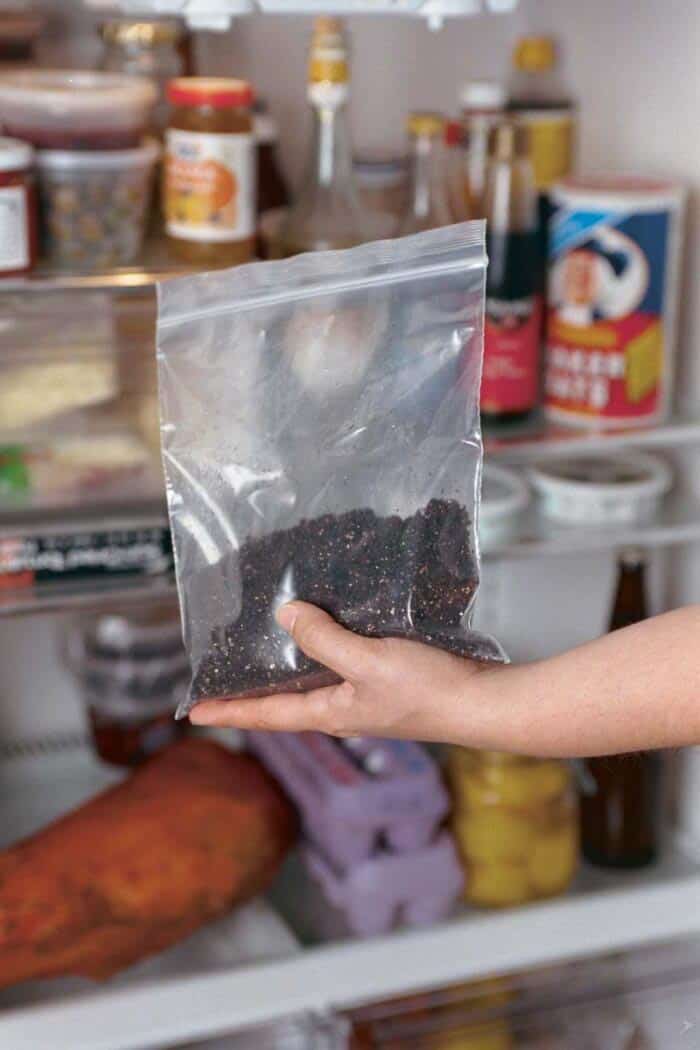
Red Maple seeds must be germinated in the fridge prior to planting for 2 to 4 weeks. The same goes for Sawtooth Oak seeds. Be sure to check your tree type needs! Image source: finegardening.com
Things to remember when planting your Bios Urn with seeds
After reading the above, you may understand why planting seeds instead of a seedling, sprout or sapling is a little riskier, since the germination process is a tender one. Not only does it vary from seed type to seed type, but seeds also have to put up with hazards such as adverse weather patterns, high wind, pests, and weeds. In order to be successful, one has to ensure that the environment in which the seeds are growing in, is conducive.
So take the time to find out the specific germination needs of the tree or plant species. A quick internet search should be sufficient, many expert gardening sites out there!
If you choose to plant a seed with your Bios Urn ®, you should plant a couple of seeds (not just one seed). Most seeds must be placed just under the soil surface because if covered too thickly they might not germinate. All of this is explained further in our Planting Instructions.
If you order a seed, it will likely need a bit of treatment before getting started. Treatment can vary, but generally takes about 1-6 weeks. Seedlings must be planted immediately after purchasing,
What if my seeds do not germinate
Seeds generally take a little longer to grow than seedlings. Most tree seeds will generally sprout within 1 to 3 weeks. If after 4 weeks you don’t see a sprout come through, it is highly likely that your seeds did not germinate. Mother Nature does work in mysterious ways and like with any living thing, not everything will go according to plan.
Don’t worry though as you can try again. Your Bios Urn® has probably not biodegraded yet if you planted it a couple of weeks prior. You are still able to replace the soil and seeds in the upper capsule without unearthing the urn should you wish to try a new set of seeds. You are also able to try a different tree type of plant following the above recommendations. Or you could decide to plant a seedling or sprout instead. Here is our planting guide to refresh the step by step guide to planting a Bios Urn ®.
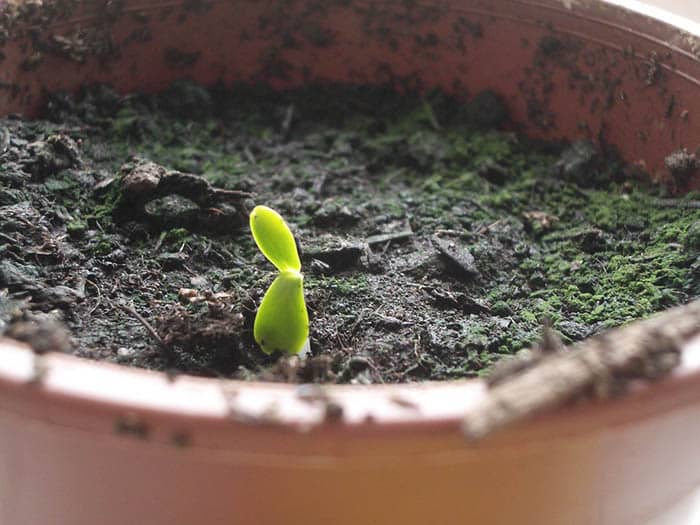
If your seed does not sprout, don’t worry as you can try again without unearthing the urn. Image source: Flikr Maria Keavs
What do you think of these tips on how to germinate seeds successfully? Has it helped you? We would love to hear from you in the Comments section below!
To keep up to date with all the latest Bios Urn ® news and stories, you can follow us on Facebook, Instagram, Twitter, Pinterest and YouTube!
Join our mailing list to keep you updated of all Bios® news and get a 10% Discount!
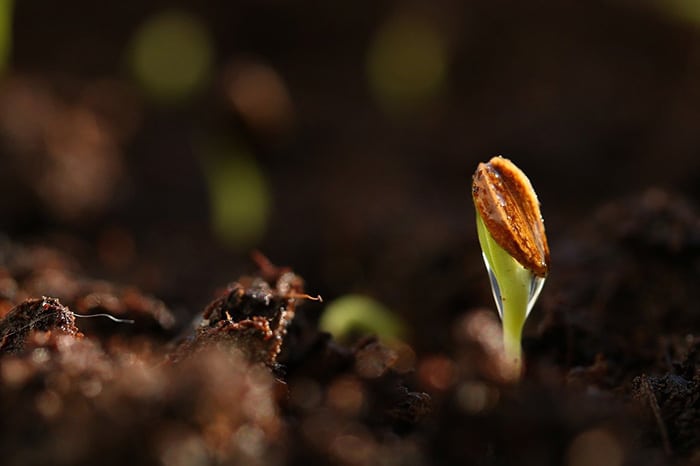
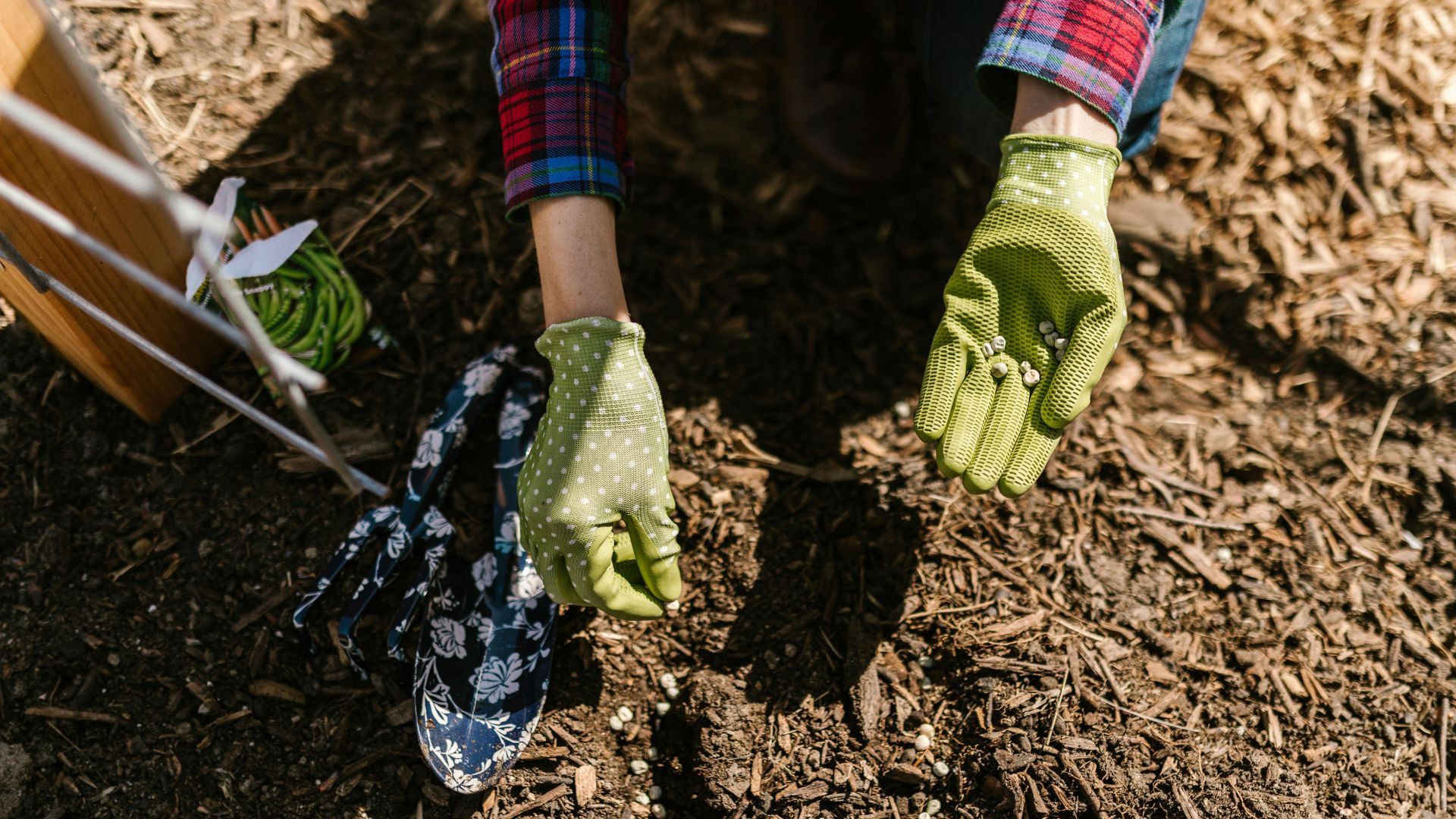
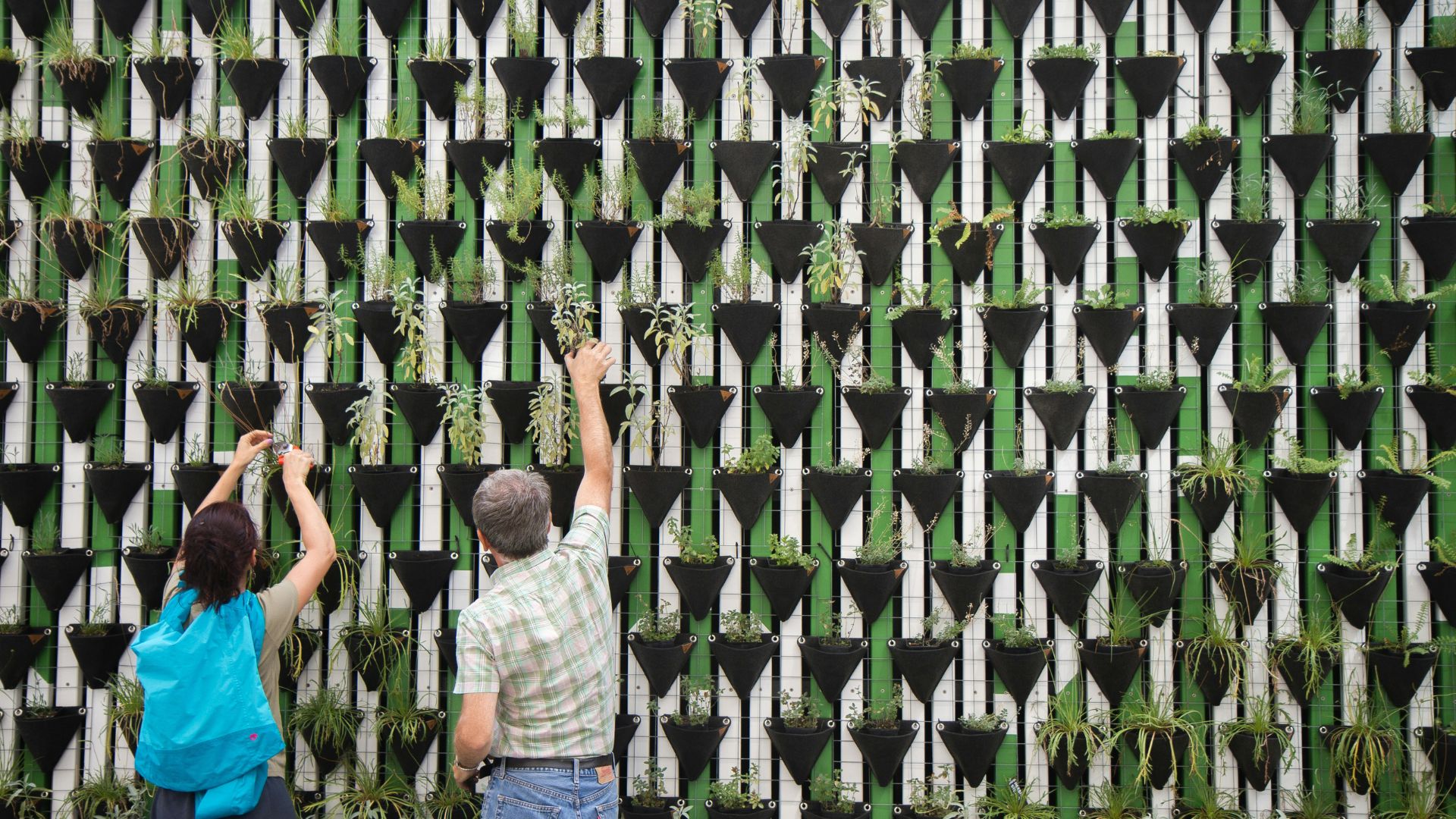
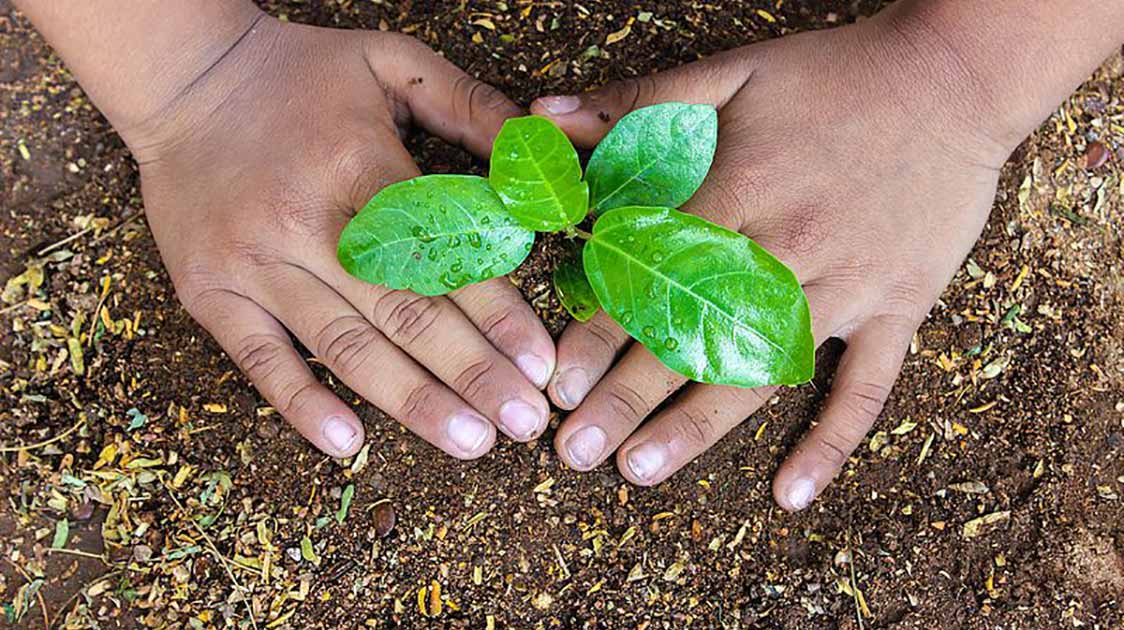
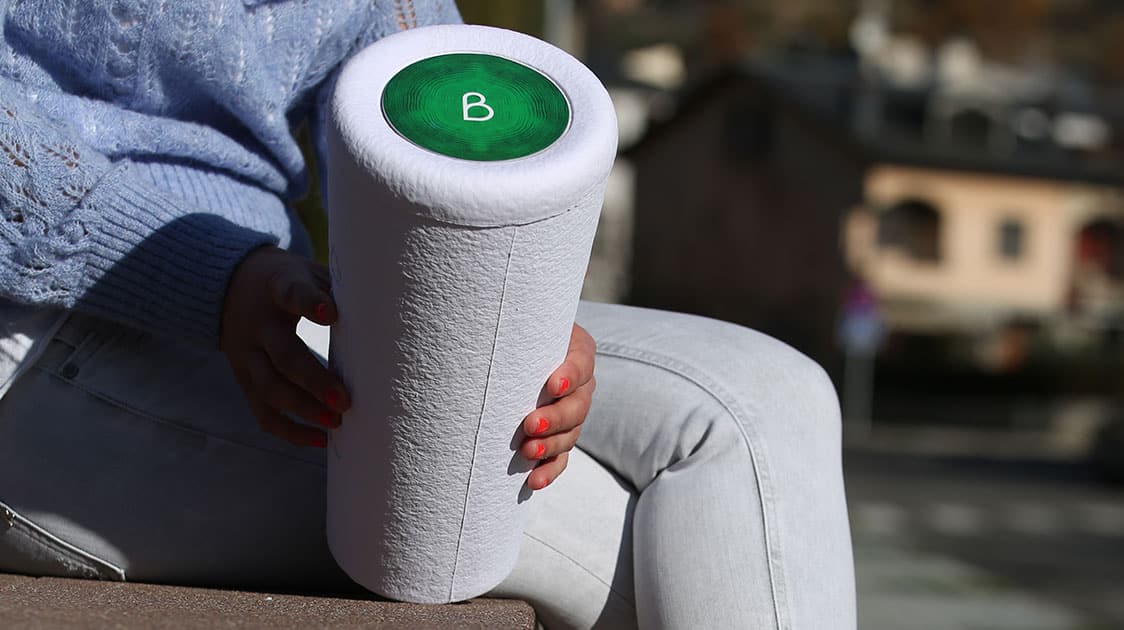

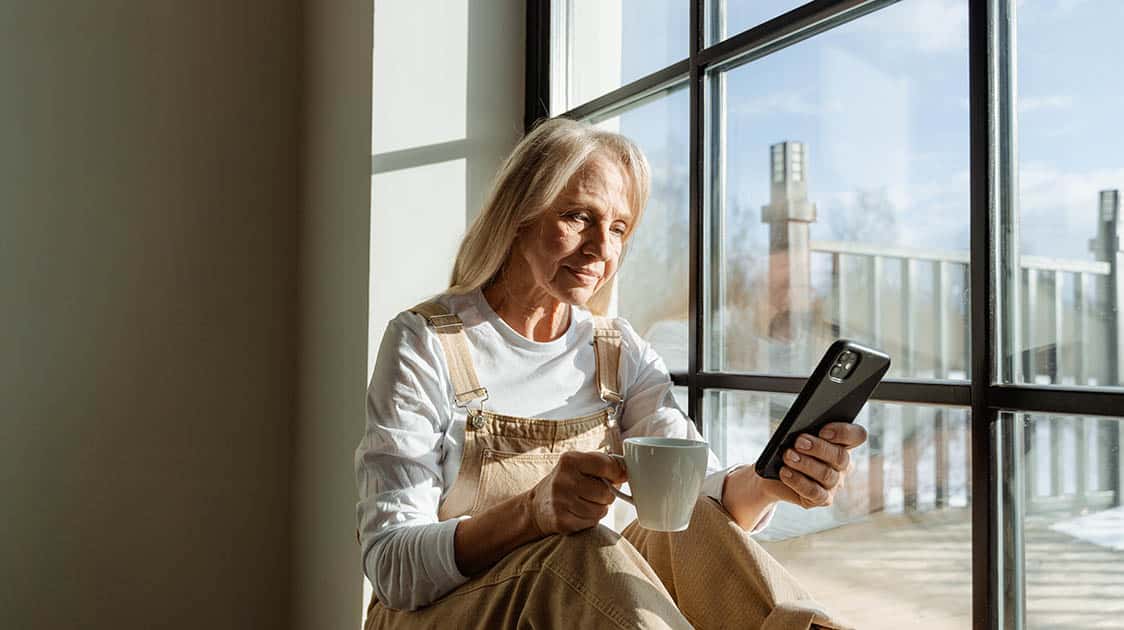
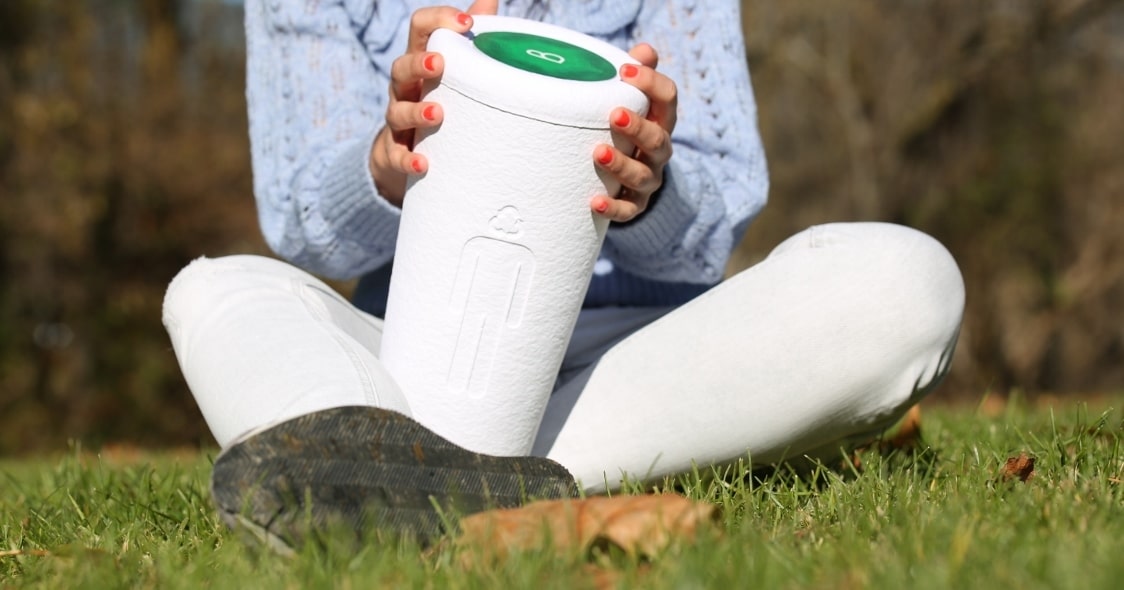
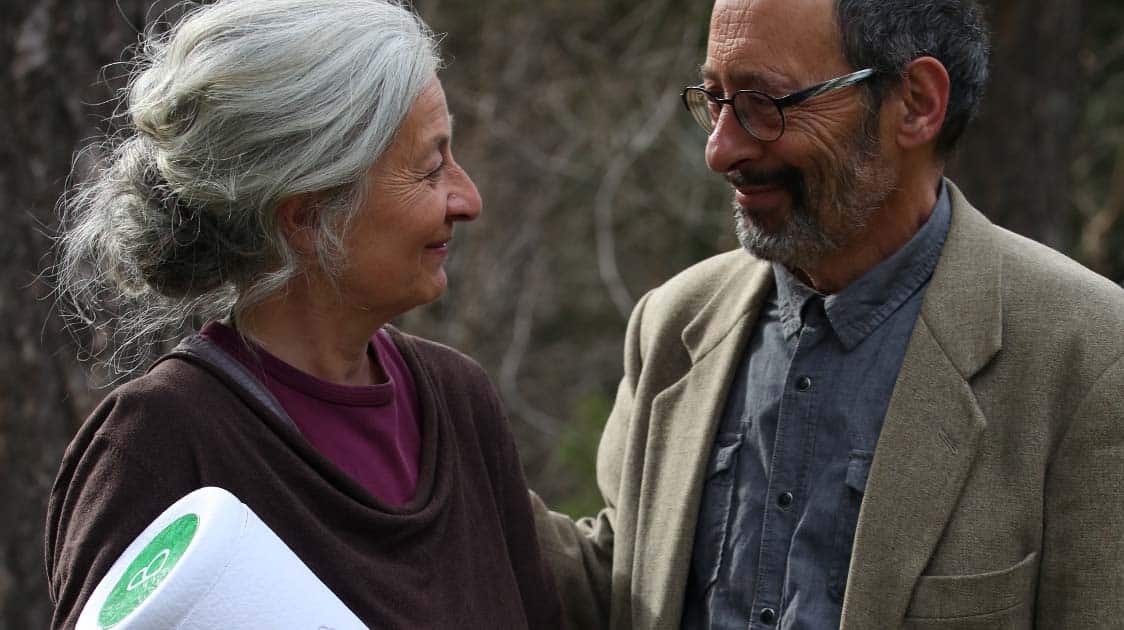
Do you have seeds?
Hi Linda! No tree seeds are currently offered on our website when purchasing a Bios Urn® because we didn’t want people to feel limited in any way when choosing a tree or plant. You see, the Bios Urn® works with every single kind of seed or seedling, no exceptions! We wanted to offer every single person the chance to think about, research and source their own directly, making this process part of the beautiful journey back to nature. We want everyone to choose a tree which is sentimental and meaningful to them and their loved-ones.
Fruit trees, flowering trees, evergreens or conifers are all completely compatible. Or some people also chose to plant a flower, a plant, or a bush instead of a tree. You can also elect to use a seedling, or sprout instead of a seed.
Whichever you feel is right for you, we always recommend choosing a native tree species or one which is common to your location since they are respectful of the environment and ensure better growth. This can be checked at a local gardening store, tree nursery or simply only. We also offer some recommendations for each country.
So that is why we do not automatically include seeds with the Bios Urn® because we want to make sure that our urn is 100% compatible with all tree types and more importantly, all types of climates. Because this gives the tree the best chances to grow strong and healthy.
Seeing as you mentioned that you were specifically interested in seeds available, we do have tree seeds in stock and we would be happy to include a type in your order (you would just need to mention this in the Observations box when checking out). You can find out about our 6 available trees here: https://urnabios.com/tree-seeds/
With warmest regards